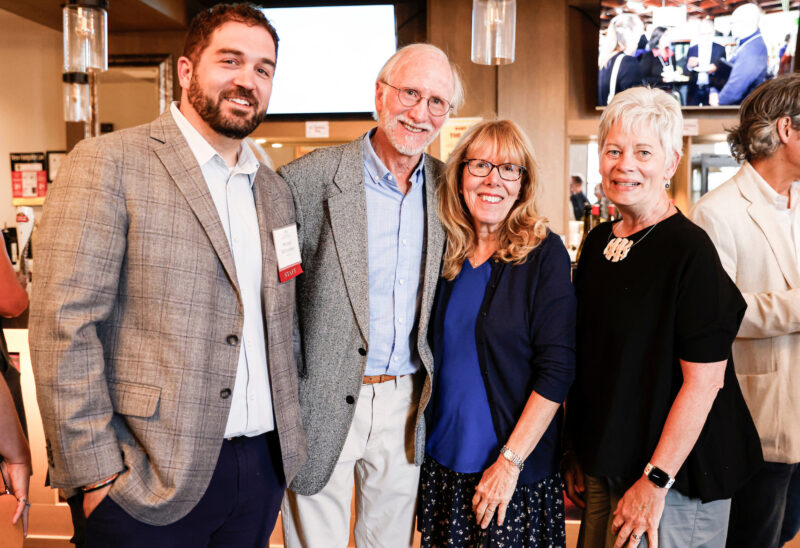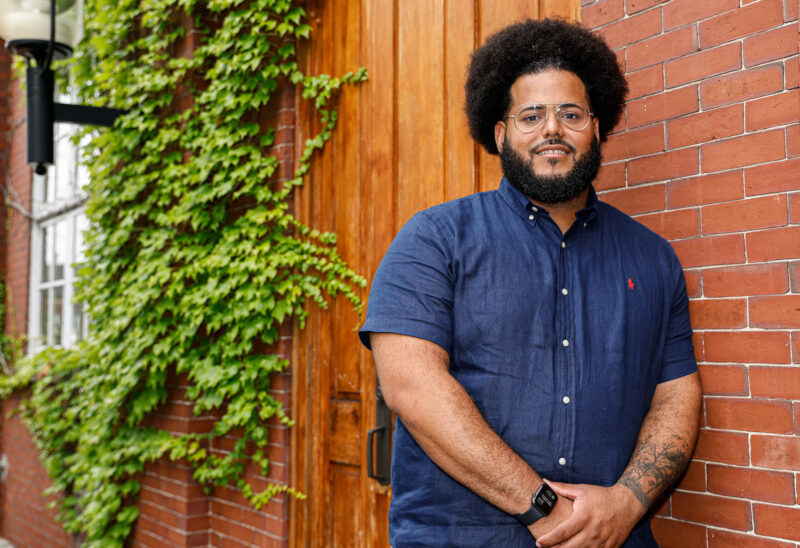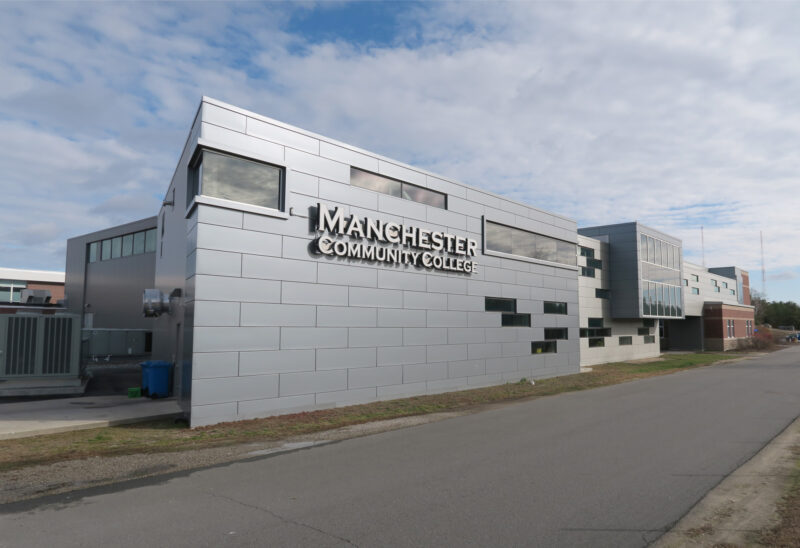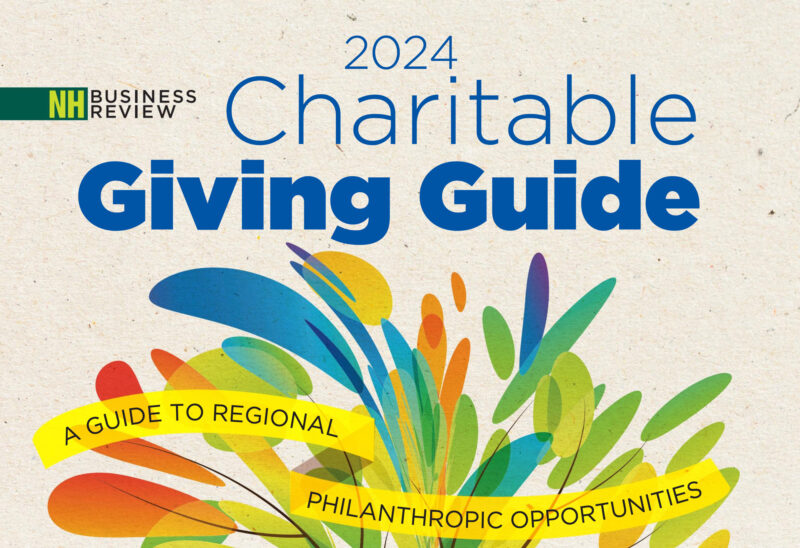The New Hampshire Charitable Foundation was created in 1962 to be a forever source of philanthropic capital for the state. For more than six decades, the Foundation has worked in close partnership with New Hampshire’s nonprofit sector — always adapting to address the most pressing needs and issues facing our state.
We were proud to work alongside nonprofits to address the complexity of challenges presented by the Covid crisis, recent economic and social upheaval, accelerating climate change and more. It has been, and continues to be, a complicated and challenging era.
Through it, we have been listening to our nonprofit partners and hearing directly from people they serve. This feedback informed our current strategic plan, Together We Thrive, which we launched in 2022.
The Charitable Foundation’s purpose is clear: To make New Hampshire a more just, sustainable and vibrant community where everyone can thrive. But as we know, not everyone is thriving, and people face very different barriers based on factors like race, income, gender identity and ability. So, to achieve our purpose, we are focused on advancing equity, racial justice, and economic security across all areas of our work. This work is both generational and urgent. It will take time, deep collaboration and an ongoing commitment to learning, listening and shifting practices.
I began a new chapter of work at the Foundation about a year ago, as vice president of the Community Engagement and Impact department.
In my new role, I am focusing on adapting the work of our department to better meet the needs of the New Hampshire community, to strengthen and deepen our relationships with nonprofit organizations and to advance the goals of Together We Thrive. Here are some ways we are adjusting our work to achieve those things, and some ways our work remains unchanged:
Grantmaking and scholarships continue apace
The Foundation will continue to grant more than $50 million annually to nonprofits doing great work that advances health and well-being, environmental protection, education, housing and other basic needs, arts and culture, civic health, economic security and more. And our Student Aid team will continue to award more than $7 million in scholarships annually to New Hampshire students to get the education they need to thrive in careers and community.
In recent years, in response to feedback from the nonprofit sector, the Foundation has emphasized providing multiyear, unrestricted operating support to nonprofits. We will continue to do so.
And we will continue to work with donor-advised fundholders and other generous people to connect them with grantmaking opportunities at nonprofits serving New Hampshire.
Reorganizing our Community Engagement and Impact department
With Together We Thrive as our guide, we are also increasing investments in specific areas of work that nonprofits and community members have emphasized. We will ensure each of these areas of work has dedicated staff expertise at the helm, building on work that, in some cases, has been ongoing for decades.
We have also reorganized some of our department staffing around that work, rather than having all grantmaking staff focused on particular geographic regions of the state. We will use grantmaking, policy and advocacy work, collaboration with nonprofits, impact investing and donor engagement to make progress in these issue areas:
- My colleagues Christina D’Allesandro, Michael Turmelle, Traci Fowler and Deborah Schachter will continue their dedicated work in the areas of early childhood and family supports, education and career pathways, behavioral health (including substance use prevention, harm reduction, treatment, and recovery), and civic health, respectively.
- Meena Gyawali will now lead our environment and climate justice strategy. And Ben Amsden will lead our efforts to meet basic needs of New Hampshire residents, focusing on homelessness and food security.
As we increase our grantmaking resources on these focused areas of work, we will be collaborating with hundreds of nonprofits and will invite grants focused on these critical issues. In most cases, this model represents a continuation of long-established relationships and the way we have been making grants for years. Some of you are already working in close partnership with Foundation staff on these issues, and our staff members have been reaching out to others to build relationships and expand our work together.
We are also in the process of creating a staff team, led by Sandeep Bikram Shah, to serve as a central point of contact for questions, ideas, and organizational needs of nonprofits (in the meantime, please contact our Grant Management staff, see information below). And our donor-advised Neil and Louise Tillotson Fund continues its grantmaking programs in the North Country and surrounding communities and has outlined its areas of focus under its current strategic plan.
Community Grants program changes
Our Community Grants program remains open to nonprofits that do not receive grants to address the issue areas mentioned above. The Community Grants program is smaller in size and scope than in the past, as we shift some resources to those areas of work outlined above. Applications will open on July 15, and nonprofits can apply for unrestricted or project-based grants up to $15,000 per year for up to two years. Full details on the application process, review, and timeline can be found on our website.
Please visit our website to learn more about our other application-based grant programs which are updated on a regular basis. As always, a good first step in working with the Charitable Foundation is to create an organizational profile on GrantSource, our online application portal.
Questions? Please be in touch
As always, the Charitable Foundation is committed to working in partnership with the state’s nonprofit sector, and we will continue to provide updates as our work develops. In the meantime, if you have questions about any of these changes, there is no wrong door.
If you have an established relationship with a staff member, that person can help to guide you. If you are not sure where to start, contact our Grant Management staff at 603-225-6641 ext. 5 or tenagncc@aups.bet.
Please also feel free to reach out to me. I am honored to do this work shoulder-to-shoulder with so many wonderful colleagues, and to work in collaboration with New Hampshire’s outstanding nonprofit sector as we help make New Hampshire a community where every person can thrive.
Simon Delekta
Vice President of Community Engagement and Impact











![Rev. Heidi Carrington Heath joined Seacoast Outright. [Photo by Cheryl Senter]](https://www.nhcf.org/wp-content/uploads/2024/05/Heidi-Carrington-Thumbnail-800x548.jpg)
![Dr. Jennie Hennigar treats a patient at the Tamworth Dental Center [Photo by Cheryl Senter]](https://www.nhcf.org/wp-content/uploads/2024/05/TCCAP-Hero-800x548.jpg)


